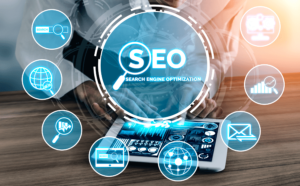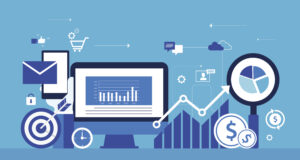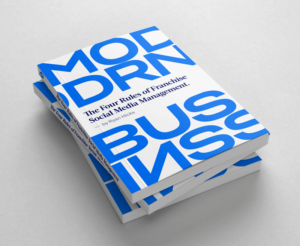How AI Replace Digital Marketing

Digital marketing has been the cornerstone of modern advertising for years, enabling businesses to reach and engage their target audiences through online channels. However, the landscape of digital marketing is undergoing a significant transformation as artificial intelligence (AI) takes centre stage. In this blog, we’ll explore how AI replace digital marketing strategies and revolutionising the industry. Rather than AI replace digital marketing /marketers, AI can empower them to make better decisions, optimize strategies, and personalize customer experiences.
AI is rapidly transforming the world of digital marketing. In the past, digital marketing relied on human intuition and manual data analysis to make decisions. However, AI replace digital marketing with powerful tools to enhance their strategies. With AI, digital marketing becomes more data-driven, efficient, and personalized. By leveraging AI technologies like machine learning and natural language processing, businesses can now automate processes, target their audience more effectively, and analyze vast amounts of data in real-time. This shift towards AI in digital marketing not only increases productivity but also enables companies to stay ahead of the competition and deliver more relevant and engaging content to their customers.
Enhanced Customer Targeting and Personalization
One of the most significant advantages of AI replace digital marketing is its ability to analyse vast amounts of data and create highly detailed customer profiles. With AI-driven tools, marketers can better understand their audience’s preferences, behaviours, and demographics. This information is crucial for crafting personalised marketing campaigns that resonate with individual consumers.
AI algorithms can predict customer behaviour and offer tailored content, product recommendations, and advertisements, increasing the likelihood of conversions. For example, e-commerce giants like Amazon and Netflix leverage AI to recommend products and content based on users’ past interactions.
Automated Content Creation
Content marketing is a fundamental aspect of digital marketing, but producing high-quality content can be time-consuming and resource-intensive. AI-driven tools are increasingly being used to automate content creation. Natural language processing (NLP) algorithms can generate articles, product descriptions, and even social media posts that are indistinguishable from those written by humans. This not only saves time but also ensures a steady stream of fresh, relevant content for your audience.
Chatbots and Virtual Assistants
AI-powered chatbots and virtual assistants are becoming indispensable tools in customer service and engagement. Chatbots can handle routine customer inquiries, provide instant responses, and guide users through websites or applications.
Predictive Analytics
AI empowers digital marketers with predictive analytics, enabling them to anticipate market trends and customer behaviours. Machine learning models can analyse historical data to identify patterns and make forecasts. Marketers can use this information to adjust their strategies, allocate resources more effectively, and stay ahead of the competition.
Programmatic Advertising
Programmatic advertising, driven by AI, is revolutionising the way digital ads are bought and displayed. AI algorithms can analyse user behaviour in real time and place targeted ads across various online platforms. This ensures that advertisements are shown to the most relevant audiences, increasing the return on investment for marketing campaigns.
SEO Optimization

AI tools can analyse search engine algorithms, track keyword performance, and suggest content improvements. They can also help with on-page optimization and backlink analysis, boosting a website’s search engine ranking.
A/B Testing and Optimization
AI can handle A/B testing and optimization of digital marketing campaigns with great precision. It can quickly determine which variations of an ad or content perform best and automatically allocate resources to the most successful options. This data-driven approach maximises the efficiency of marketing efforts.
Certainly! Let’s delve deeper into the ways AI replace digital marketing and explore some additional aspects of this evolution.

Social Media Management
Social media is a crucial component of digital marketing, and AI is playing a significant role in social media management. AI-powered tools can schedule posts, analyse engagement metrics, and even provide recommendations for content strategies. Additionally, sentiment analysis can help brands understand how customers perceive them on social platforms, enabling them to adapt their messaging and respond to customer feedback more effectively.AI replace digital marketing
Email Marketing Optimization
Email marketing is a powerful tool for reaching and nurturing leads. AI enhances this strategy by automating email campaigns and segmenting email lists based on user behaviour and preferences. AI-driven email marketing platforms can also optimise the timing of email sends, helping to improve open rates and conversion rates.
Visual Search
Visual search is another area where AI is making waves in digital marketing. It allows users to search for products or information using images rather than text. E-commerce businesses, for instance, are using AI to enable customers to search for products by uploading pictures or screenshots. This makes the shopping experience more intuitive and user-friendly.
Voice Search Optimization
AI helps digital marketers understand how users interact with voice-activated devices and develop content and SEO strategies tailored to this emerging channel.
Content Curation and Recommendation
AI-driven content recommendation engines, like those used by Netflix and Spotify, are becoming common in digital marketing. These systems analyse user behaviour and preferences to suggest personalised content, whether it’s articles, videos, or products. Such recommendations enhance the user experience and drive user engagement and retention.
Marketing Attribution and ROI Analysis
AI tools can help digital marketers track the customer journey across multiple touchpoints and channels, making it easier to attribute conversions and determine the return on investment for each marketing activity. This data-driven approach enables businesses to allocate resources more effectively and optimise their marketing strategies.
Real-time Data Analysis
AI enables real-time data analysis, allowing digital marketers to respond quickly to changing market conditions or consumer behaviour. This agility is invaluable, especially during events like product launches or marketing campaigns. Marketers can adjust their strategies on the fly, ensuring that they remain relevant and effective.
The Role of AI replace digital marketing
in Content Creation
Content marketing is a basic pillar of digital marketing. It involves creating and sharing valuable, relevant, and consistent content to attract and engage a specific audience. AI is making a substantial impact on content creation in the following ways:
- Automated Content Generation
Creating high-quality content can be time-consuming and resource-intensive. AI-powered content generation tools, often using natural language processing (NLP) and machine learning, can now automatically produce articles, product descriptions, and social media posts. automated content generation of AI replace digital marketing is content creation, saving time and resources for faster time-to-market. This not only saves time but also ensures a consistent flow of fresh and relevant content for your audience.
- Personalized Content
Personalization is key to engaging today’s consumers. AI replace digital marketing to analyse a user’s behaviour, preferences, and browsing history to deliver personalised content recommendations. For example, Netflix uses AI to suggest movies and TV shows based
on a viewer’s previous choices. In the e-commerce sector, Amazon recommends products based on past purchases and user browsing history. This personalised approach significantly enhances the user experience and boosts conversion rates.
- SEO Optimization
Search engine optimization (SEO) is an integral part of digital marketing, as it helps businesses rank higher in search engine results pages (SERPs). AI tools are now assisting marketers in improving their SEO strategies. These tools can analyse search engine algorithms, track keyword performance, suggest content improvements, and even help with on-page optimization. For example, AI can identify trending keywords and help marketers understand how to use them effectively in content to improve search engine rankings.
- Multilingual Content
As businesses expand globally, the need for multilingual content is increasing. AI-driven translation tools can provide quick and cost-effective solutions. These tools use neural machine translation models and have made significant advancements in accurately translating content into multiple languages. This allows businesses to reach a wider audience and enter new markets without the need for extensive human translation resources.
The Role of AI in Marketing Analytics
The power of AI extends beyond content creation; it’s also invaluable for data analysis and insights. Here are some key ways AI is revolutionising marketing analytics:
- Predictive Analytics
AI-driven predictive analytics is helping marketers anticipate market trends and customer behaviours. By analysing historical data and identifying patterns, machine learning models can make forecasts about future market conditions and customer preferences. This information empowers marketers to adjust their strategies proactively, allocate resources effectively, and stay ahead of the competition.
- Marketing Attribution
Marketing attribution is the process of identifying and assigning value to the various touchpoints that lead to conversions. AI helps in accurately attributing conversions to the right channels and tactics. AI algorithms can analyse customer journeys across multiple touchpoints and provide valuable insights into which marketing efforts are most effective in driving conversions. This information is crucial for optimising the marketing mix and maximising return on investment (ROI).
- Real-time Data Analysis
AI enables real-time data analysis, allowing marketers to respond quickly to changing market conditions or consumer behaviour. This agility is invaluable, especially during events like product launches or marketing campaigns. Marketers can adjust their strategies on the fly, ensuring that they remain relevant and effective in a fast-paced digital environment.
- A/B Testing and Optimization
A/B testing, also known as split testing, is a method where two versions of a webpage or advertisement are compared to determine which one performs better. AI-driven A/B testing and optimization tools can conduct tests with great precision. These tools quickly identify which variations of an ad or content perform best and automatically allocate resources to the most successful options. This data-driven approach maximises the efficiency of marketing efforts and helps achieve better results.
The hand of AI in Social Media Marketing
AI is playing a significant role in social media management and advertising:
- Social Media Management
Managing social media accounts for businesses can be a time-consuming task. AI-powered tools can schedule posts, analyse engagement metrics, and provide recommendations for content strategies. Additionally, sentiment analysis can help brands understand how customers perceive them on social platforms, enabling them to adapt their messaging and respond to customer feedback more effectively.
- Chatbots and Virtual Assistants
AI-powered chatbots and virtual assistants are becoming indispensable tools in customer service and engagement. Chatbots can handle routine customer inquiries, provide instant responses, and guide users through websites or applications.
- Social Media Advertising
Programmatic advertising, driven by AI, is revolutionising social media advertising. AI algorithms can analyse user behaviour in real time and place targeted ads across various social media platforms. This ensures that advertisements are shown to the most relevant audiences, increasing the return on investment for marketing campaigns.
The Role of AI in Email Marketing
Email marketing remains a dominant tool for reaching and raising leads. AI enhances email marketing in several ways:
- Automated Email Campaigns
AI-powered email marketing platforms can automate email campaigns and segment email lists based on user behaviour and preferences. These platforms can also optimise the timing of email sends, helping to improve open rates and conversion rates.
- Content Personalization
AI can personalise email content, such as subject lines and recommendations, based on individual user profiles and behaviour. Personalised email content is more engaging and has a higher likelihood of conversion.
The Role of AI replace digital marketing
in Visual and Voice Search
- Visual Search
Visual search technology allows users to search for products or information using images or photos rather than text. For example, if you see a pair of shoes you like, you can take a picture and search for similar items online. E-commerce businesses are using AI to enable customers to search for products by uploading images or screenshots. Visual search makes the shopping experience more intuitive and user-friendly.
- Voice Search Optimization
AI helps digital marketers understand how users interact with voice-activated devices and develop content and SEO strategies tailored to this emerging channel.
The Role of AI in E-commerce and Retail
E-commerce and retail are sectors that have been profoundly affected by AI-driven digital marketing strategies:
Exploring the Dynamic World of Digital Marketing as a Careerhttps://conseltex.com/digital-marketing-as-a-career/
- Personalised Product Recommendations
AI algorithms analyse a user’s browsing and purchase history to provide personalised product recommendations. For example, Amazon uses AI to recommend products based on a customer’s past purchases and browsing history. This personalization not only enhances the user experience but also drives higher conversion rates.
- Dynamic Pricing
Dynamic pricing, which adjusts prices in real time based on factors like demand, competition, and inventory levels, is powered by AI replace digital marketing
. This strategy allows e-commerce businesses to maximise revenue while remaining competitive.
- Visual Search in E-commerce
Visual search in e-commerce is an exciting development. AI enables customers to find products by uploading images or screenshots. For example
Conclusion of AI replace digital marketing
The answer of is AI replace digital marketing is, integration of artificial intelligence into digital marketing is not a replacement but an evolution. AI is augmenting and enhancing traditional marketing strategies, making them more effective and efficient. As AI continues to advance, digital marketers must adapt and embrace these technologies to stay competitive in an increasingly data-driven and personalised marketing landscape.AI has the potential to significantly reshape the landscape of digital marketing. While it AI replace digital marketing, AI’s influence is unmistakable.
AI replace digital marketing is only going to grow. Businesses that leverage the power of AI-driven tools and strategies will be better positioned to understand their audience, create engaging content, and optimise their marketing efforts, ultimately driving greater results and ROI. While AI replace digital marketing landscape , it also opens up new possibilities for creative and data-driven marketing professionals to thrive in this exciting and ever-evolving field.
more about Will AI replace digital marketing https://neilpatel.com/blog/will-ai-replace-human-marketers/




